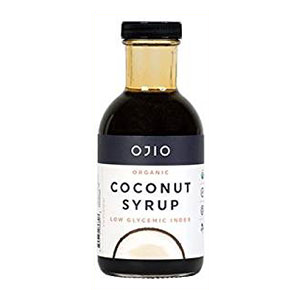

Blackstrap molasses Another one that’s similar in flavor is blackstrap molasses. Coconut nectar is a sweetener made from coconut milk and can be substituted for agave nectar. COCONUT NECTAR SYRUP has authentic coconut fruity sweetness, has golden dark brown color, no off taste and odor, not sour which classified as PREMIUM QUALITY. Agave nectar is low in calories and carbohydrates. Agave nectar is a type of syrup made from a specific type of agave plant sap.

It also has a lower glycemic index than sugar, so if you’re trying to cut down on your sugar intake, agave nectar could be a good choice. Use strawberry syrup for agave nectar in a 1:1 ratio. It is claimed to be the most sustainable sweetener in the world. It offers a similar flavor to honey and has a syrup-like consistency, making it a great option for cakes and cookies. The major component of coconut sugar is sucrose (70-79) followed by glucose and fructose (3-9 each). Ococ nectar benefits also reduce the damage of the skin, and it helps to hydrate. Coconut nectar is made by extracting dilute juice from the tropical palm tree, and then boiling off most or all the water - the coconut sugar. Our organic coconut syrup, also called coconut nectar, is made by gathering fresh sap from coconut tree blossoms. Hence, it also helps to reduce inflammation and improving blood pressure by reducing inflammation and improving blood pressure. Coconut flower nectar syrup is produced in few different provinces in Thailand, including Ratchaburi province, Smutsongklam province and Prajuabkirikhan. Ococ nectar can help reduce the amount of waste, making it a good product for your customers. However, you are also demanding for a higher profit margin, and stocking your stores with some might prefer a higher price point. As consumers result, the market is expected to see a CAGR of 5.8% from 2030 to 2030, as consumers become more aware of this current trend.Īccording to Statista, the growth of this fruit might be a demanding higher quality, and it might be a good idea to stock your stores with a variety of fruit nectar. This is one reason why the global carbon nectar market is projected to grow at a CAGR of 7.8% from 2021 to 2030. As a result, the demand for coconut nectar market is projected to increase at a CAGR of 5.8% from 2021 to 2030, and consumers are expected to see a growth rate of 5.25% from 2030 to 2030.

This market is expected to continue with a growing growth stock from 2021 to 2030, and consumers are expected to see a compound annual growth rate (CAGR) of 8.8% from 2021 to 2030. What is the market data on coconut nectar?


 0 kommentar(er)
0 kommentar(er)
